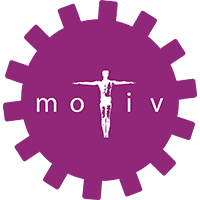Team Training Techniques for TU Delft Project Groups:
How to Collaborate Effectively
Introduction to Team Training at TU Delft
Collaboration is at the core of project-based learning at TU Delft, where students work together to tackle complex engineering, science, and technology projects. Effective teamwork is essential for achieving project goals and ensuring a rewarding academic experience. This article covers valuable team training techniques to help TU Delft project groups collaborate effectively and achieve success.
Understanding the Dynamics of Project Groups
Project groups at TU Delft are characterized by diversity, unique skill sets, and the need for coordination. While teamwork offers opportunities for learning and skill-building, it also presents challenges such as communication barriers and differing work styles. Team training provides students with the tools to overcome these challenges, building a foundation for efficient collaboration.
Key Components of Effective Team Collaboration
- Clear Communication: Successful teams prioritize open and transparent communication to share ideas, provide updates, and resolve misunderstandings.
- Defined Roles and Responsibilities: Each team member’s role should be clear to avoid overlapping efforts and ensure accountability.
- Trust and Respect: Building trust through reliability and mutual respect fosters a supportive team environment, which is crucial for group success.
- Shared Goals and Expectations: Establishing shared objectives helps align team members’ efforts and sets a standard for accountability.
Team Training Techniques for Enhancing Collaboration
- Icebreaker Activities: Starting with icebreaker exercises allows team members to build rapport and establish a comfortable group dynamic.
- Active Listening Exercises: Techniques such as paraphrasing and asking questions help improve understanding and empathy among team members, leading to stronger collaboration.
- Conflict Resolution Workshops: Conflict is natural in group settings, and workshops on conflict resolution equip students with tools to handle disagreements constructively.
- Role-Playing Scenarios: Practicing real-world scenarios helps teams tackle problem-solving tasks, develop leadership skills, and understand each other’s perspectives.
- Feedback Sessions: Regularly scheduled feedback sessions promote continuous improvement and help team members address issues promptly.
Utilizing Technology for Team Collaboration
Technology can streamline teamwork and keep project groups connected:
- Collaboration Tools: TU Delft provides access to tools like Microsoft Teams, Miro, and other collaborative platforms that support document sharing, real-time communication, and task management. Explore more on Collaboration Tools at TU Delft.
- Virtual Meeting Best Practices: Scheduling regular check-ins, setting agendas, and following up on tasks are effective practices for maintaining productivity during virtual meetings.
- Project Management Software: Tools such as Asana and Trello help project groups keep track of assignments, set deadlines, and monitor progress, creating a transparent workflow.
Case Studies: Successful Team Collaboration at TU Delft
Several TU Delft project groups have achieved remarkable results by applying effective team training techniques:
- Case Study Example 1: A team working on a sustainable energy project implemented active listening and feedback sessions, which led to an open communication culture and helped them meet their project milestones.
- Case Study Example 2: An international team collaborated on an AI project, overcoming language barriers through role-playing exercises and regular feedback sessions. This approach helped the team navigate cultural differences and achieve project success.
These examples demonstrate that techniques like active listening, clear role assignment, and feedback sessions contribute to cohesive teamwork and successful project outcomes.
Challenges in Implementing Team Training Techniques
- Time Constraints: Academic schedules can make it difficult for students to allocate time for team training activities.
- Resistance to New Methods: Some team members may resist changes or new collaboration techniques.
- Cultural and Language Barriers: In diverse groups, cultural differences can affect team dynamics, requiring additional efforts to foster inclusivity.
Strategies for addressing these challenges include setting clear expectations, encouraging adaptability, and seeking support from resources like TU Delft’s Effective Teamwork Resources.
Measuring the Effectiveness of Team Training
- Team Performance Indicators: Measure productivity by tracking project milestones, deadlines met, and task completion rates.
- Team Dynamics Assessment: Evaluate team cohesion by analyzing communication patterns, conflict resolution success, and overall group morale.
- Feedback Mechanisms: Use team surveys or one-on-one feedback sessions to gather insights into team satisfaction and areas for improvement.
FAQs on Team Training Techniques for TU Delft Project Groups
- What are the most effective team training techniques for project groups? Effective techniques include active listening exercises, conflict resolution workshops, role-playing, and regular feedback sessions.
- How can we address conflicts that arise during group projects? Conflicts can be managed through structured conflict resolution techniques, establishing clear communication, and holding open feedback sessions.
- What tools are recommended for virtual collaboration among team members? Tools like Microsoft Teams, Miro, and Trello support virtual collaboration by offering document sharing, real-time messaging, and task management features.
- How can we ensure equal participation from all team members? Defining roles, setting clear expectations, and encouraging open communication help ensure that all members contribute actively to the project.
Conclusion: Embracing Team Training for Academic Success
Effective collaboration is essential for success in TU Delft’s project-based learning environment. By adopting team training techniques, students can enhance their communication, build trust, and develop valuable skills for academic and professional growth. Embrace the benefits of team training to foster a culture of teamwork, accountability, and success at TU Delft.

